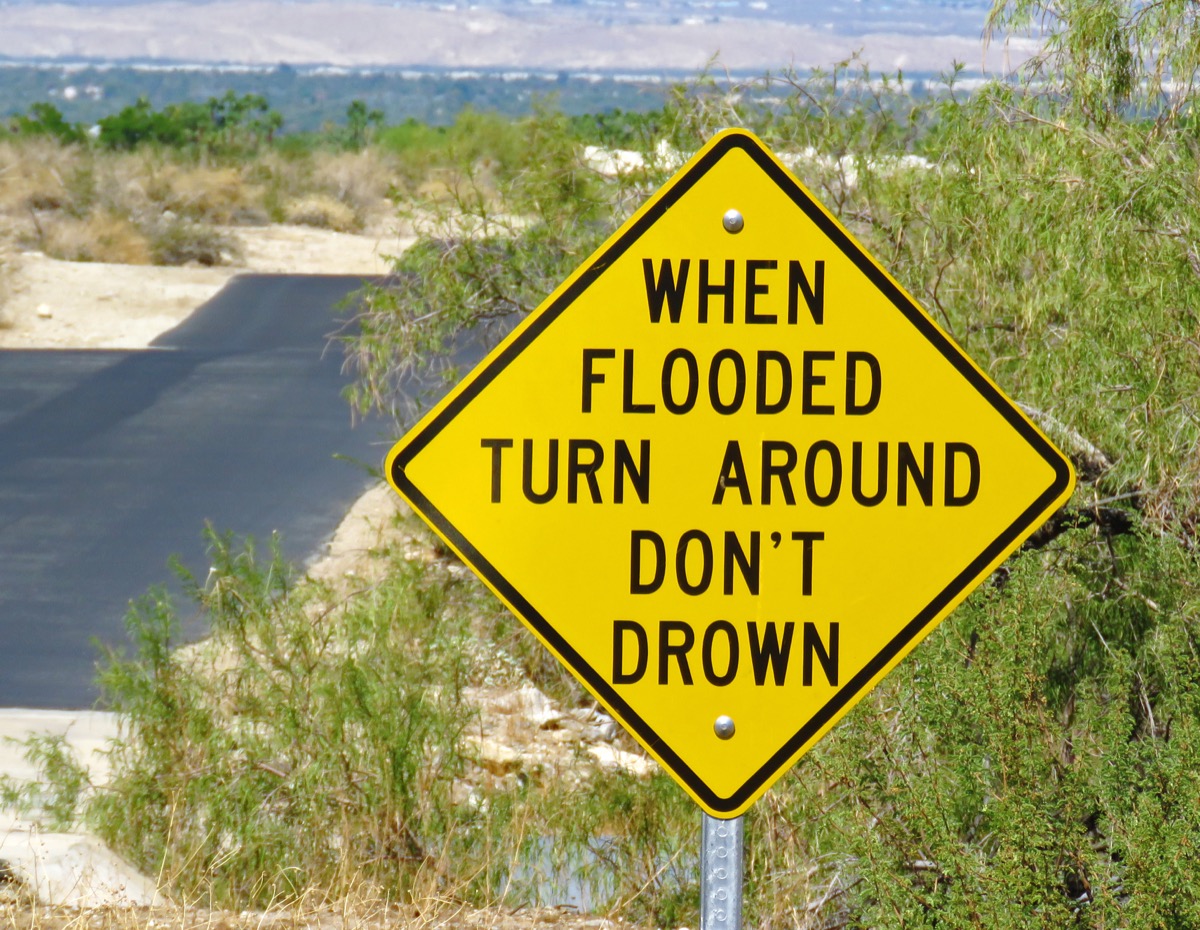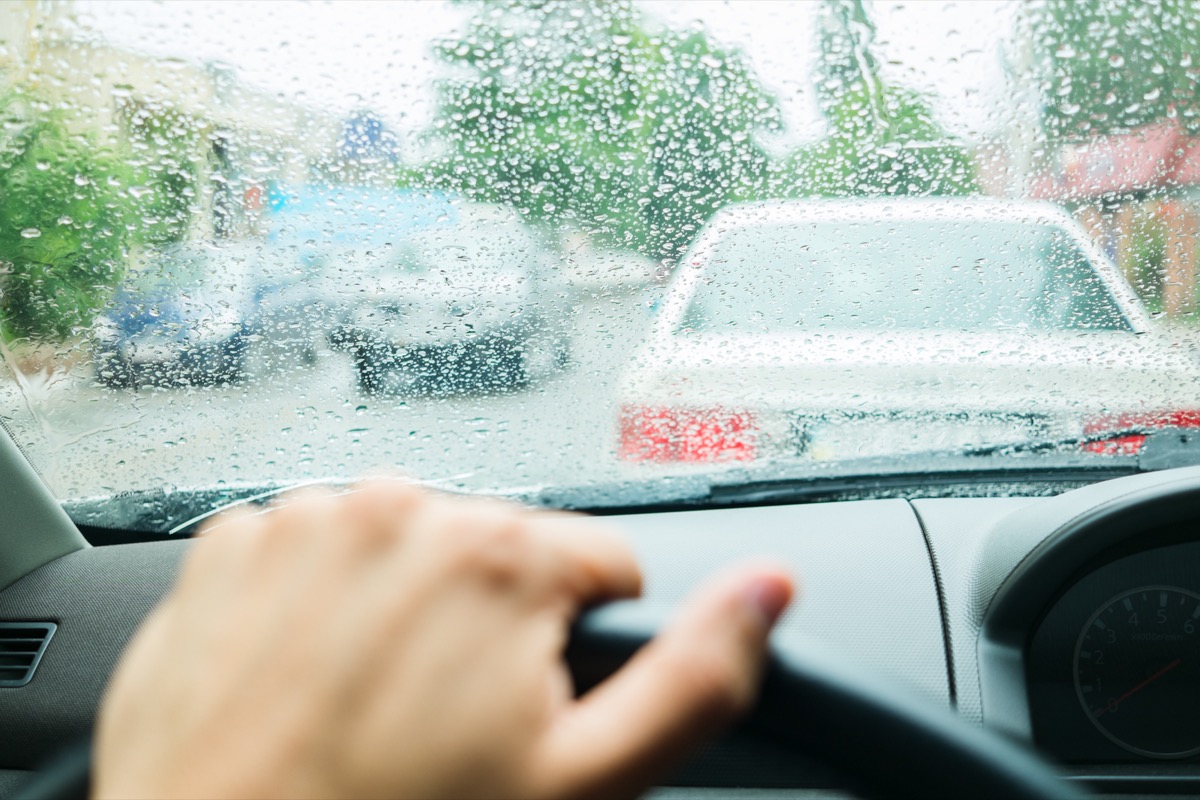RELATED: If You Live in These States, Don’t Drive With Your Windows Down, Officials Warn. If you’re on the road and you notice flood water ahead, the CDC recommends that you turn around immediately. Flood water can rise quickly, and even a small amount of water can present a fatality risk for experienced swimmers who get out of their car to walk, the health authority explains. In fact, according to 2020 data from the National Weather Service, over the past 30 years, floods have caused more fatalities than lightning, tornadoes, hurricanes, winter, or cold. For the latest summer safety news delivered to your inbox, sign up for our daily newsletter. Even if the flood water in front of you doesn’t seem particularly deep, or if there is no signage present alerting you to hazardous conditions ahead, driving through areas with any flood water still presents a serious safety risk.ae0fcc31ae342fd3a1346ebb1f342fcb The National Weather Service reports that as little as six inches of water standing can cause drivers to lose control of their vehicles; and six inches of moving water can cause people walking in flood water to fall. A foot of water can cause your car to float, and two feet of moving water can carry your car away. While turning around to avoid flood water entirely is the best course of action, the National Weather Service recommends evacuating and moving to higher ground when it’s possible to do so safely if flood water has risen around your car. RELATED: This Is the Deadliest Road in America, According to Data. While safe evacuation of a car in rising flood water is possible, if your car is trapped in fast-moving water, Ready.gov, the U.S. government-sponsored emergency preparedness resource, recommends staying inside your vehicle. If water has infiltrated and is rising within your car, climb onto its roof. Losing control of your car or drowning aren’t the only safety concerns flood water presents. According to the CDC, flood water can be contaminated with chemicals and hazardous waste, and may even contain wild animals, vehicles, pieces of lumber, and other items that can cause injury. The health authority notes that contaminated flood water may put you at risk for contracting tetanus, rashes, digestive illnesses, wound infections, and, in rarer cases, leptospirosis, a bacterial infection. If you do come into contact with flood water, wash your body thoroughly with soap and water as soon as possible, wash your clothes with detergent in hot water, treat any wounds, and contact a healthcare professional if you have concerns. RELATED: If You Kept This Drink in Your Car, Don’t Consume It, Experts Say.



